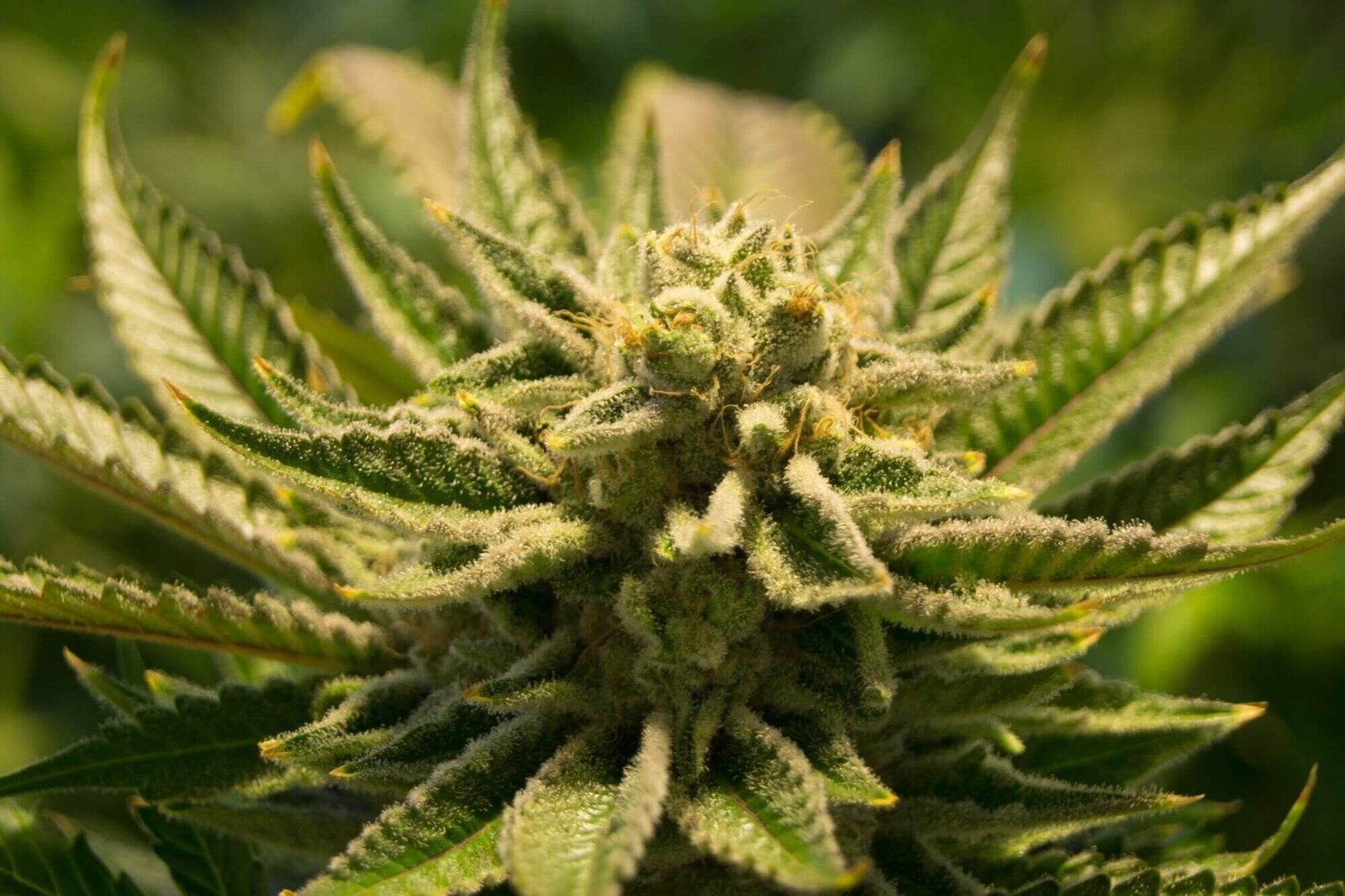Real Benefits of Medical Marijuana: What the Science and Patients Say
Comprehensive, evidence-backed guide to the real benefits of medical marijuana for health.

20 Health Benefits of Medical Marijuana
What if there was a magical plant that could give you a whole new life?
Sure, it may sound like something out of a fairytale. But the simple truth is that medical marijuana can improve your life in ways you never even imagined!
Unfortunately, many who could benefit from a medical marijuana card have no idea what this simple plant can do to improve their quality of life. Keep reading to discover some of the biggest health benefits of medical marijuana!
Over the years, many have joked that they intend to get a medical marijuana card to treat their glaucoma. But there is some truth to this notion simply because medical marijuana can reduce the pressure in your eyes that negatively impacts your ability to see.
However, we always encourage you to talk with your doctor about your plans for medical marijuana and how this will impact your current symptoms and current treatment plan. This way, you have the best possible chance of getting the relief you need.
It may sound crazy to imagine that medical marijuana could help fight off cancer. But according to a study from 2007, this is completely true!
According to the study, CBD was able to keep breast cancer cells from spreading. Later, more studies from the American Association for Cancer Research discovered that marijuana could slow the spread of other types of cancer cells. This included cancer in the breasts, brains, and lungs.
Multiple sclerosis can be a very painful condition due to frequent spasms. On top of this, there are negative neurological symptoms from MS that can cause additional pain.
Fortunately, marijuana offers some relief from these types of pain. A study sponsored by the Canadian Medical Association found that some patients experienced relief from their painful symptoms after smoking marijuana. In some cases, these were patients that didn’t respond to other forms of treatment, meaning marijuana was one of the only real ways they could get relief from their pain!
Speaking of pain, many who suffer from arthritis can never fully escape the pain of their condition. In fact, the inflammation of arthritis can make your waking days a nightmare and even make it that much harder for you to get some sleep.
However, multiple hospitals have experimented with giving arthritis patients cannabinoid-based medication. The end result of this is that patients experienced reduced inflammation, giving them some long-awaited pain relief and helping them get some sleep.
With medical marijuana, those with arthritis can experiment with different strains until they find one that is “just right.”
Many people are terrified of getting Alzheimer’s, and rightfully so. This condition affects the brain and can ultimately compromise everything from your memory to your very sense of identity.
While there is no cure for Alzheimer’s, there are ways to prevent it, and medical marijuana is one of those ways. Because THC keeps your brain from producing amyloid plaques that destroy your brain cells, it can ultimately keep you from developing Alzheimer’s.
This is one more reason that we like to remind people that you are never too old to benefit from medical marijuana.
Parkinson’s Disease can cause many side effects, but the most notable effect is the tremors. Between the pain of Parkinson’s and the sensation of the tremors, it can be very difficult to fall asleep, no matter how tired you currently are.
However, marijuana can be a real game-changer for those who suffer from Parkinson’s. That’s because marijuana can help reduce your pain while easing your tremors. Incredibly, Parkinson’s patients who regularly use marijuana have even managed to improve their fine motor skills, and all due to a plan that is neither addictive nor habit-forming.
Hepatitis C is one of those conditions where treatment may be the worst part. After all, Hep C treatment often leads to patients developing side effects such as depression, muscle pain, loss of appetite, nausea, and fatigue. When the side effects get bad enough, many patients have to cease their treatment altogether.
However, marijuana helps reduce the severity of many symptoms. For example, marijuana naturally stimulates appetite, which is great for those who have lost their appetite. And it can improve mood while relieving pain.
Altogether, getting a medical marijuana card can help someone with Hepatitis C finally complete their treatments and get the relief they deserve.
Epilepsy is as strong as it is frightening. The seizures that come from epilepsy are painful and unexpected, and there are very few sources of potential relief.
Fortunately, medical marijuana is one of the best ways to consistently get relief. Studies have shown that THC can have a positive effect on the parts of the brain that cause seizures. And by binding those particular brain cells with marijuana, you can finally control your epileptic seizures like you never have before.
In its own way, Crohn’s is one of the worst possible diseases. It is very difficult to diagnose and very difficult to treat. Because of this, many who experience Crohn’s have resigned themselves to a life with no relief in sight.
However, a jaw-dropping study from Israel discovered that marijuana may be the treatment those with Crohn’s have been waiting for. This small study examined 11 patients with Crohn’s, and 10 of those patients experienced a significant reduction in their symptoms. Incredibly, five of the patients had their symptoms go away entirely.
Now, this was one small study, so we can’t definitively say that marijuana cures Crohn’s. But it does offer a great chance to get relief from the unwanted symptoms.
While Dravet’s Syndrome is relatively rare, it is known to cause developmental delays and painful seizures. But marijuana can reduce those seizures to a tiny fraction of the amount that was already there.
Interestingly, marijuana’s ability to treat Dravet’s Syndrome is at the heart of the push in recent years towards legalizing medical marijuana. That’s because CBD was used to successfully treat the symptoms of Charlotte Figi, reducing her seizures from 300 per week to only one per week.
This led to the development of Charlotte’s Web CBD. And with her as the new face of the movement towards legalization, many states began marching towards making medical marijuana available to state residents with qualifying conditions.
At first, it seems paradoxical to imagine that smoking marijuana could improve your lung health. After all, what is different about smoking tobacco versus smoking marijuana?
However, marijuana users must take deep breaths while inhaling, unlike tobacco smokers. As an unexpected result of this, Journal of the American Medical Association researchers discovered that marijuana improved lung capacity for users over a 20-year period!
Lupus is one of the most mysterious medical conditions out there. Doctors and scientists are not completely sure what causes it. However, we do know that once you have Lupus, it causes parts of your body to attack the rest of your body.
If you suffer from Lupus, then marijuana may be able to offer some relief. That is because marijuana causes a positive impact on your immune system to help you deal with Lupus side effects. And the reduction in inflammation means that Lupus is less likely to cause you severe pain and severe nausea.
We have covered how marijuana can help with muscle spasms from multiple sclerosis. Interestingly, though, it can help out with spasms caused by other types of conditions as well!
For example, it can reduce the spasms that come as a result of Leeuwenhoek’s Disease. This is due to marijuana’s ability to relax muscles…in this case, relaxing diaphragm muscles and allowing the patient to breathe.
Basically, if you suffer from muscle spasms, it’s worth considering how marijuana can reduce your symptoms and pain.
It’s something of a cultural stereotype that marijuana can make you paranoid. Just ask Shaggy and Scooby-Doo! But the great irony is that marijuana can help you to reduce your anxiety in a powerful way.
In this case, it all comes down to how much marijuana you smoke. If you smoke high doses, then it can heighten your anxiety and possibly increase paranoia. But in smaller doses, especially with the help of a good medical marijuana doctor, marijuana can improve your mood, reduce anxiety, and just generally help you to relax.
Some of the biggest proponents of medical marijuana are those who have undergone or are currently undergoing chemotherapy. That is because chemo leads to annoying side effects like nausea, pain, and a lack of appetite. But medical marijuana can help with all three symptoms!
In addition to easing the effects of nausea, marijuana can reduce inflammation and, therefore, reduce unwanted pain from chemo. And while people like to joke about getting high and getting “the munchies,” marijuana really does stimulate your appetite. If chemo is causing you to lose weight, then a little appetite stimulation can go a long way!
While regular anxiety is bad enough, there is nothing quite so bad as PTSD. In fact, having PTSD is like being haunted by the worst day of your life, and there is usually no easy way to make things better.
However, marijuana can help with PTSD for the simple reason that it affects different parts of the brain in different ways. In this case, it can keep your brain from causing as much fear and anxiety, and this can help reduce the effects of PTSD in a safe and reliable way.
Many of us probably remember those notorious “this is your brain, this is your brain on drugs” commercials. Their message was simple: drugs are going to hurt your brain. But in the case of marijuana, the exact opposite is true!
Recent experiments have discovered that marijuana can help protect your brain from concussions and other forms of trauma. So if you are in a car accident or other major event that could damage your brain, smoking medical marijuana can protect your brain from bruising and other serious damage.
Speaking of protecting your brain, that task is particularly difficult to accomplish after you have had a stroke. But marijuana can help you accomplish this difficult task.
Basically, if you use marijuana after you have a stroke, it can reduce the size of the affected area. So while this isn’t perfect protection, it is a safe and manageable way to control the spread of damage to your brain after the stroke.
Previously, we touched on the fact that marijuana may offer unprecedented relief for those suffering from Crohn’s Disease. As luck would have it, marijuana offers relief and protection from other irritable bowel diseases as well.
This includes conditions such as ulcerative colitis. That is because, in addition to the effects on your brain, marijuana can have a positive impact on your immune system and gut functions. Marijuana can also help to strengthen your intestines over time, offering further bowel relief.
While we love medical marijuana, the simple truth is that there can be occasional negative side effects as well. But even the negative side effects can lead to beneficial outcomes, especially if you suffer from nightmares.
For example, marijuana can potentially disturb your REM sleep cycle. While going without REM sleep for long periods is a bad idea, the upside is that your worst nightmares occur during your REM cycle. By periodically disrupting that cycle with medical marijuana, you can say “sweet dreams” to those scary nightmares!
Now you know the many benefits of medical marijuana. But do you know who can help you experience these benefits?
Here at Doctors of Cannabis, we specialize in getting you the medical marijuana card that you need. To see how we can help make this happen, just contact us today!

Comprehensive, evidence-backed guide to the real benefits of medical marijuana for health.

Introduction Chronic pain is a debilitating condition that affects millions of people worldwide. Traditional treatments often involve the use of...

2 min read
From lack of sleep, side effects of medication to psychological factors and hormonal imbalances, obesity is a major concern for over 70 million...